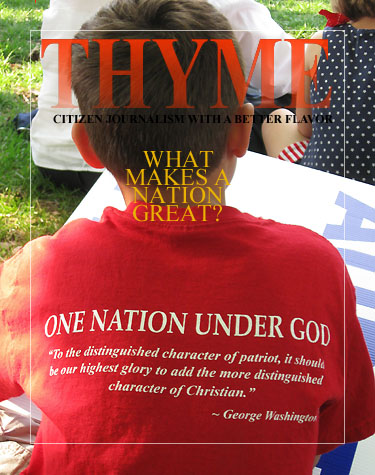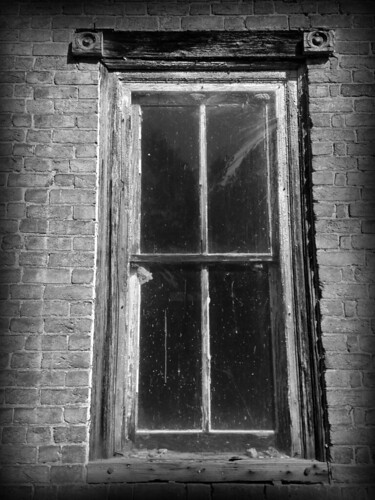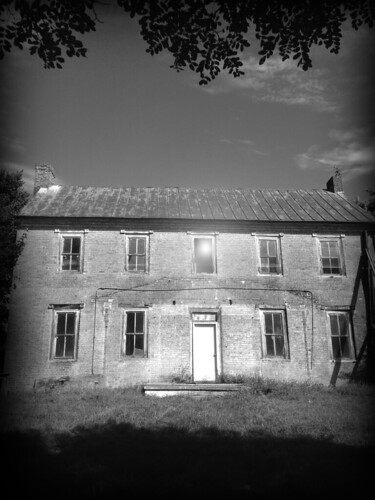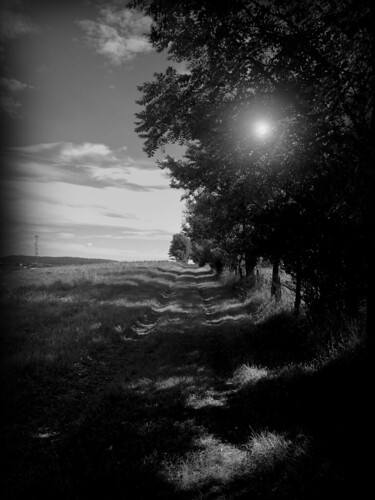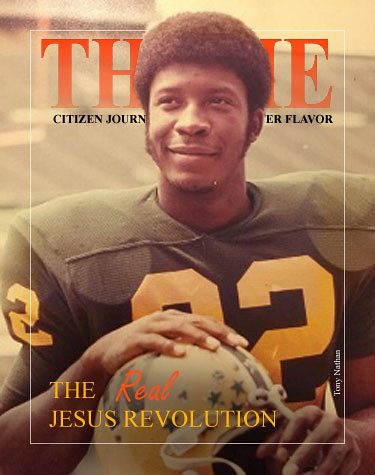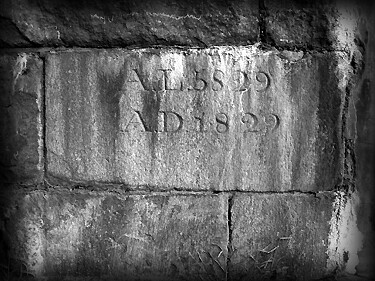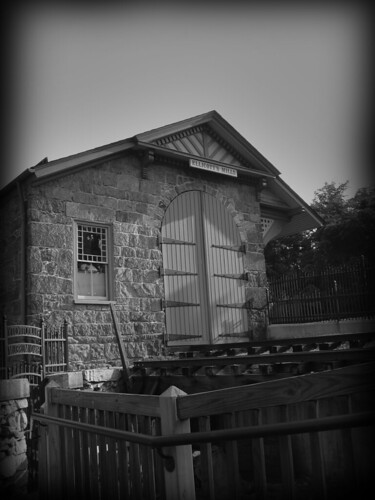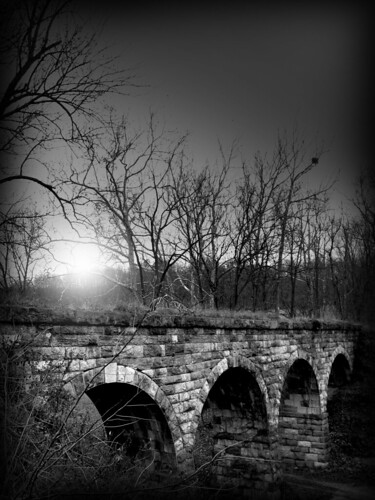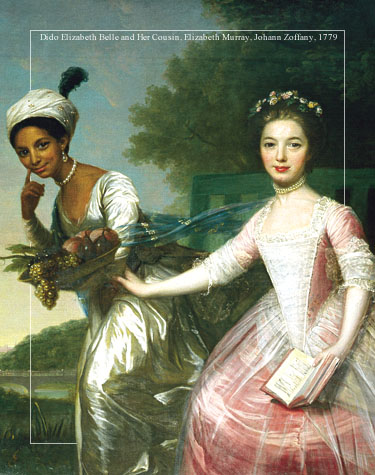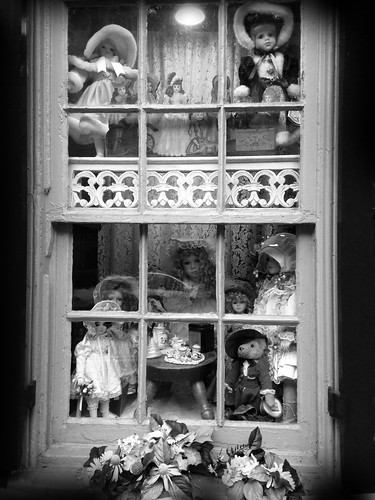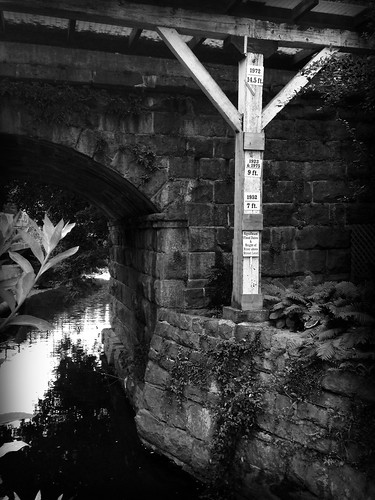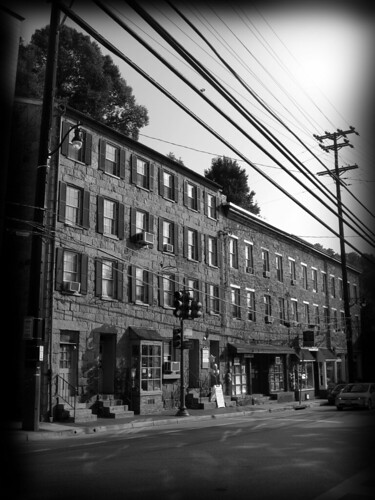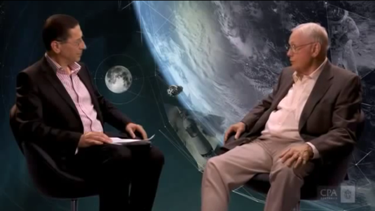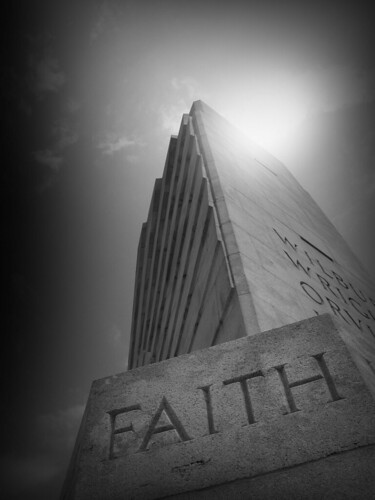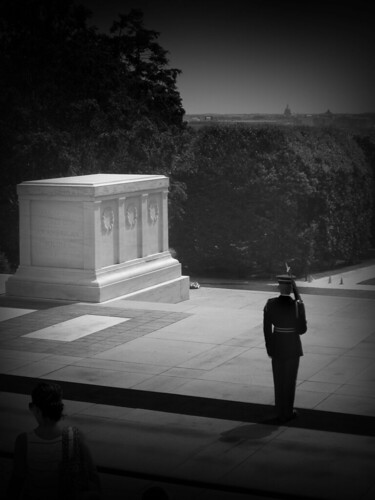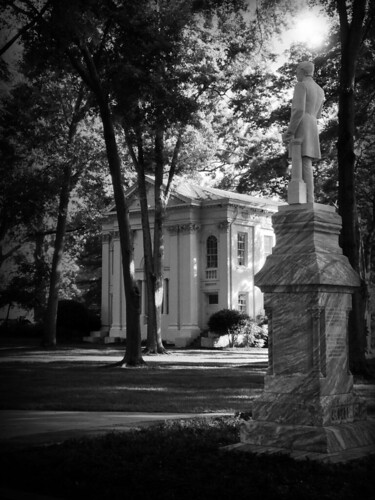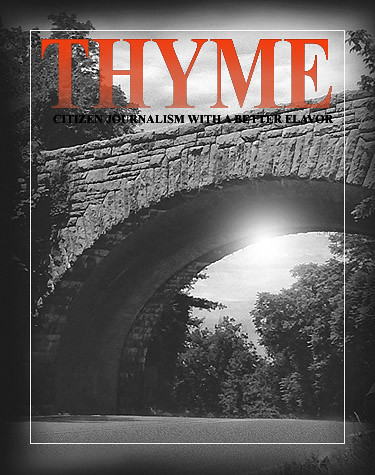
Volume XII, Issue V
Therefore I want the men everywhere to pray, lifting up holy hands without anger or disputing." -- 1 Timothy 2:8
For I am the Lord your God who takes hold of your right hand and says to you, Do not fear; I will help you." -- Isaiah 41:13
There are souls perplexed with doubt, burdened with infirmities, weak in faith, and unable to grasp the Unseen; but a friend whom they can see, coming to them in Christ's stead, can be a connecting link to fasten their trembling faith upon Christ." -- E. G. White, The Desire of Ages

An Alaska bush pilot flies above the Misty Fjords.
An Alternative to Despair
I really shouldn't read so many marketing articles. Recently I read one about "the way to sell alternative financial strategies and precious metals." The author pointed to the fact that in financial news reporting, fear gets you to read the article and the article gets you to buy the gold! He said: "Looming Economic Collapse" is a headline that puts you at the top of the results every time. Design your book with an exploding atomic bomb on the cover and you are pretty much guaranteed sales.
Some people will pretty much ignore you (including, I've found, a lot of real experts who are quite aware of and acknowledge very real and serious problems), some will turn up their music and avoid the issue all together... but some will buy the books, go to the seminars and become 'experts,' ready to lead you into your own personal panic attack... but here's why I pretty much avoid the tawdry tabloids and happily devour City Journal and American Conservative instead.
I see a mandate in Holy Writ, not to spread the stuff. The world has serious problems, it needs the Hope of a Solid Gospel. Here the Church is often seen by those around us in the wrong light. Some see the simplistic presentation of the prosperity message and go away because it is unrealistic, but some see the bringers of bad news and are equally repulsed. Wait a minute! The Gospel is Good News! Why do we need Good News? Because at face value the world of things seen tells us to despair.
We are at odds over so many things right now, and frankly, there are those who profit from dividing us... but our national motto: E Pluribus Unum actually describes an action: Many uniting into one. An accurate translation of the motto is "From Many, One" or "Out of Many, One" – a phrase that captures the symbolism on the shield of the United States. When our nation was first brought forth, there were many factions and nationalities. The first committee charged with creating a shield design in 1776 originally entertained a design that recognized our diverse roots.
It contained the rose (England), thistle (Scotland), harp (Ireland), fleur-de-lis (France), lion (Holland), and an imperial eagle (Germany),accompanied by the motto: E Pluribus Unum. One needs to recognize the significance of this in light of the bloody wars that the European Continent had experienced in the Centuries prior to our founding. Catholic Maryland could join with Puritan New England in the common good. Diversity of a good sort could indeed exist while the common defense and the common good were tended to.
In the 1830's it could have accepted a Cherokee State in the mountains of Georgia, North Carolina and Tennessee. Sadly, immoral gain is not excluded even in the best crafted institutions, and greedy speculators brought the demise of this great experiment. Through bloody war, the enslaved people of African descent were granted citizenship and the issue of Federal powers overshadowed those of the individual states as the following generations would grapple with what Constitutional restraints prohibited.
In the Twentieth Century, the unity of our diversity allowed us to win global wars and maintain the peace which so many of us take for granted. The Navajo Nation gave us our best code for winning the war in the Pacific.
So, in the Twenty-first Century, with the world as it is, should we be concerned? Indeed we should. Concerned, Yes!, but despairing?, No! We do indeed need to fight against those who would tribalize us for their own political gain. We need to look to core basic functions of good government again, eschewing sweeping attempts to 'fundamentally transform' our nation from Washington. Yes, we need to weed out a few bad cops, but we need to open our eyes and see that across the nation, local police forces have become quite diverse. An officer and his or her partner can be of a variety of ethnicities and they take care of each other. Don't listen to the merchants of fear and distrust, there are many good people in public safety roles!
We need to beware of the merchants of fear and distrust who want to re-craft our institutions to 'protect' those that THEY identify as 'oppressed.' They are all too ready to scrap TRUE Liberty, such as Religious Liberty, in their quest to transform. The merchants of fear and distrust populate the academy, and it bears mentioning that they were telling us that we would run out of oil in the 1970's as the world descended into its next great Ice Age! Still, their foggy spectacles are the portal through which too many view the world today.
Global Warming' is preached in the academy (and by way of them through the media) with religious imperative!, though their data is far from complete or conclusive. At the same time, the role of Christian thought is marginalized, though there is much documentation of our Nation's institutions being founded upon it. [1.] But in addition to acknowledging the existence of lofty ideals, we must remember that this Nation was built by some terribly flawed men.

A pet store sign in Staunton, Virginia asks G-d to protect our police officers.
A Call to Action
There is a perpetual parade of celebrities who have stated that they will leave the country if Donald Trump is elected President. I say: "good riddance." They are the merchants of fear and distrust in entertainment. One needs to understand that Washington promoted an agenda while ignoring the will of the people. THEY created the problem that led to the rebellion. Indeed, there is a general frustration with the political establishment right now and here there are a few points worth noting.
1. The Government has created the problem. Indeed their reckless borrowing and policies that strangle real economic growth add to the damage caused by bad trade deals that undermine legitimate protections for American industries. We're losing our middle-class and we need to stop doing so. Also, activist judges have used the courts to create legislation, circumventing the will and good of the people. It is imperative that we elect leaders who will NOT appoint activist judges... it is imperative that we elect legislators who take seriously the checks and balances prescribed in our Constitution. They are there for our protection.
2. The party in power has effectively neutralized legitimate opposition through voter fraud, executive orders and plain out misrepresentation to the media of their honest opposition. In eight years they have had little or no opposition as they created massive financial bailouts and took over the health insurance market, but there is no evidence that they have actually fixed anything. Health insurance is more expensive. The economy is stagnant. They look out of their windows in Washington at projects they have funded with borrowed money and declare that "all is right with the world." They're even replacing the grass on the National Mall. Construction cranes fill the Washington Skyline, but 'Flyover Country' languishes. That's most of America.
3. They want us to think our vote doesn't count. They WANT us to think that we need to give them more power. These merchants of fear and distrust want us to believe that they are putting things aright and just need more power (and money) in order to do so. They want us to overlook the travesty of Benghazi while telling us that their opponent is unfit to lead! They WANT us to stay home or vote a 'protest' (third party) vote.
But we must not believe them. History tells us this Nation has been in peril before. History tells us that the right man to build a Transcontinental Railroad may have feet of clay (as Thomas Clarke Durant indeed did), but in the wake of the railroad came the Gospel. America was so built. [2.] That is not to say we shouldn't desire moral men and women to lead us, but we need to understand the place of historical figures like Cyrus, the Medo-Pesian Ruler who provided for the rebuilding of Israel and her Temple [3.] The text says of this heathen king: “...who says of Cyrus, ‘He is my shepherd and will accomplish all that I please; he will say of Jerusalem, “Let it be rebuilt,”and of the temple, “Let its foundations be laid.”’ “This is what the Lord says to his anointed, to Cyrus, whose right hand I take hold of to subdue nations before him and to strip kings of their armor, to open doors before him so that gates will not be shut: I will go before you and will level the mountains; I will break down gates of bronze and cut through bars of iron. I will give you hidden treasures, riches stored in secret places, so that you may know that I am the Lord, the God of Israel, who summons you by name. For the sake of Jacob my servant, of Israel my chosen, I summon you by name and bestow on you a title of honor, though you do not acknowledge me. I am the Lord, and there is no other; apart from me there is no God I will strengthen you, though you have not acknowledged me, so that from the rising of the sun to the place of its setting people may know there is none besides me. I am the Lord, and there is no other.” -- Isaiah 44:28-45:6 [4.]
Though there are many IN the household of Faith who will quickly caution me that you can't compare a specific prophecy of Israel to America today (even as a few devour the latest work of a well publicized novelist who mixes Kabbalah, a form of Jewish mysticism, with scripture to do just that). But I am not looking for prophecy... I am looking for principles, to guide me as I participate in the upcoming election. The principle I find is this: A leader who gives place for the Divine is always preferable to one who does not. Cyrus materially participated in the restoration of Israel. Donald Trump has promised to work to repeal the Johnson Amendment, effectively giving people of Faith a place at the table. [5.] One candidate brings Mike Pence and Ben Carson to the table, the other does not and brings the same group who have been there for eight years.
So, I see a clear choice in the upcoming election. I will vote for Donald Trump, Mike Pence and a host of good State and Local candidates. I do not look for a Saviour in a candidate... but I DO look for a BUILDER. [6.] Specifically, I look for a Bridge Builder [click to read]. We need a robust plan to rebuild our economy and bring our diverse people together again. [7.] We need to ignore the merchants of despair and division. We need to prove that they are wrong!
As I write this, I realize that I have dear friends who will abstain from voting or vote third party because they feel that Trump is not morally fit to hold the office. I would ask them if Mrs. Clinton, with her many scandals, is? Moreover, I would point out that John Kennedy was no paragon of virtue. He had a terrible temper, and an incredibly foul mouth when the press were absent. Children from a local school were invited to the White House for a ceremony of some sort and they were, I was told, treated to some rather rough language from Kennedy, who was unaware that they had entered the room. Yet we see him as a great President. He cut taxes to unleash private economic development, bolstered our national defense and gave us collective vision.
Who can forget the stirring charge: "Ask NOT what your country can do for you, but what YOU can do for your country!" Also, Kennedy deftly placed the need for technological parity with the Soviet Union into a civilian program with a mandate to put a man on the Moon and return him safely to Earth. Like Winston Churchill, who won the Battle of Britain, Kennedy was a man with faults he did not apologize for. C.S. Lewis admired Churchill, acknowledging his faults. Lewis praised Churchill and supported him (though he turned down a titled potential appointment to government service).
Lewis feared his quest for Christian Vision would be watered down in an attempt to debunk Socialism, though he himself had no desire to PROMOTE the ideology. That is why he refused Churchill's offer. Here I think Lewis leads us in seeing a greater vision for the person of Faith... that of building the unseen Kingdom. History tells us that the heathen Romans built the roads. The First Century evangelists traveled them. Isimbard Kingdom Brunel [8.] built the railroad that revitalized Bristol, but it was George Müller who revived the city's spirit as he lifted the abandoned children of a needy city and gave them hope and a future in Christian Love. We need a BUILDER of the America we love and want to preserve, [9.] but we must, as people of Faith, fill that land with the work of the Divine Kingdom.

Firefighter, Charlottesville, Virginia.
Finding the Permanent in the Political
[click to read]
John G. West, Jr. — Senior Fellow, Discovery Institute
The year was 1951, and England was embroiled in a bitter general election campaign. Six years earlier the Conservative Party of Winston Churchill had been thrown out of power. Now the same party, still led by the same indomitable Churchill, was attempting a comeback. The conventional wisdom was that the attempt would fail. The conventional wisdom was wrong. Voters went to the polls on October 25, and the next morning the whole world knew that the the Conservative Party had recaptured control of Parliament and Churchill had regained the post of Prime Minister. (read more)
Winston Churchill
[click to read]
How a Flawed Man Became a Great Leader
— By John Simpson
In 2002 the BBC broadcast a series called 100 Greatest Britons. After each programme in which particular figures were proposed and examined - they were mostly but not exclusively the usual suspects, such as Darwin, Shakespeare and Elizabeth I - viewers were invited to vote. In the end, there was no doubt about their verdict - Sir Winston Churchill was the greatest Briton. The case for him is a powerful one, of course. He was first a government minister in 1908, and occupied most of the top jobs in politics during half a century. He finally retired in 1955, having served as prime minister for a total of nine years. But it was his extraordinary leadership in World War Two that marked him out. Bold, brave and tireless in his resolve to take on the might of Nazi Germany, he inspired a nervous and hesitant Britain through his sheer energy and force of personality to defy stark odds and never give in. The entire world's history would have been different if he hadn't come to power in Britain in 1940. Still, Churchill made huge mistakes in his long political life. (read more)
The America I Love
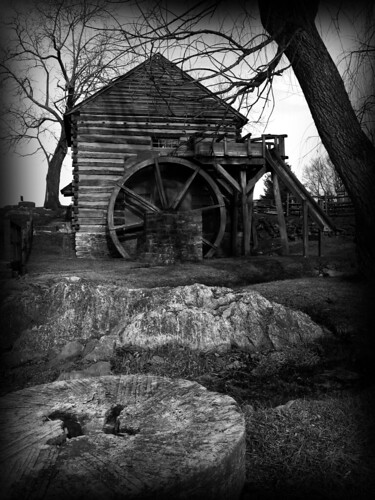
Mill at the Cyrus McCormick Farm. Birthplace of the reaping machine that revolutionized agriculture.

Fir trees on Elliott Knob. Once thought to be the highest mountain in Virginia until Mount Rogers was found to be taller.
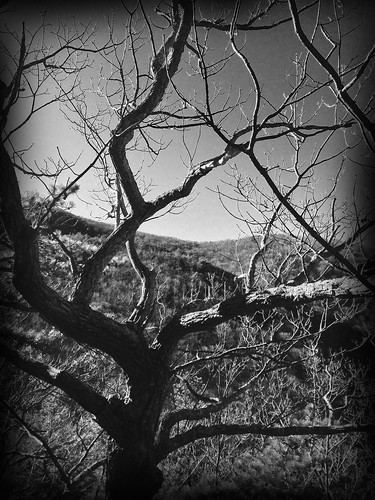
Tree on North Mountain.

